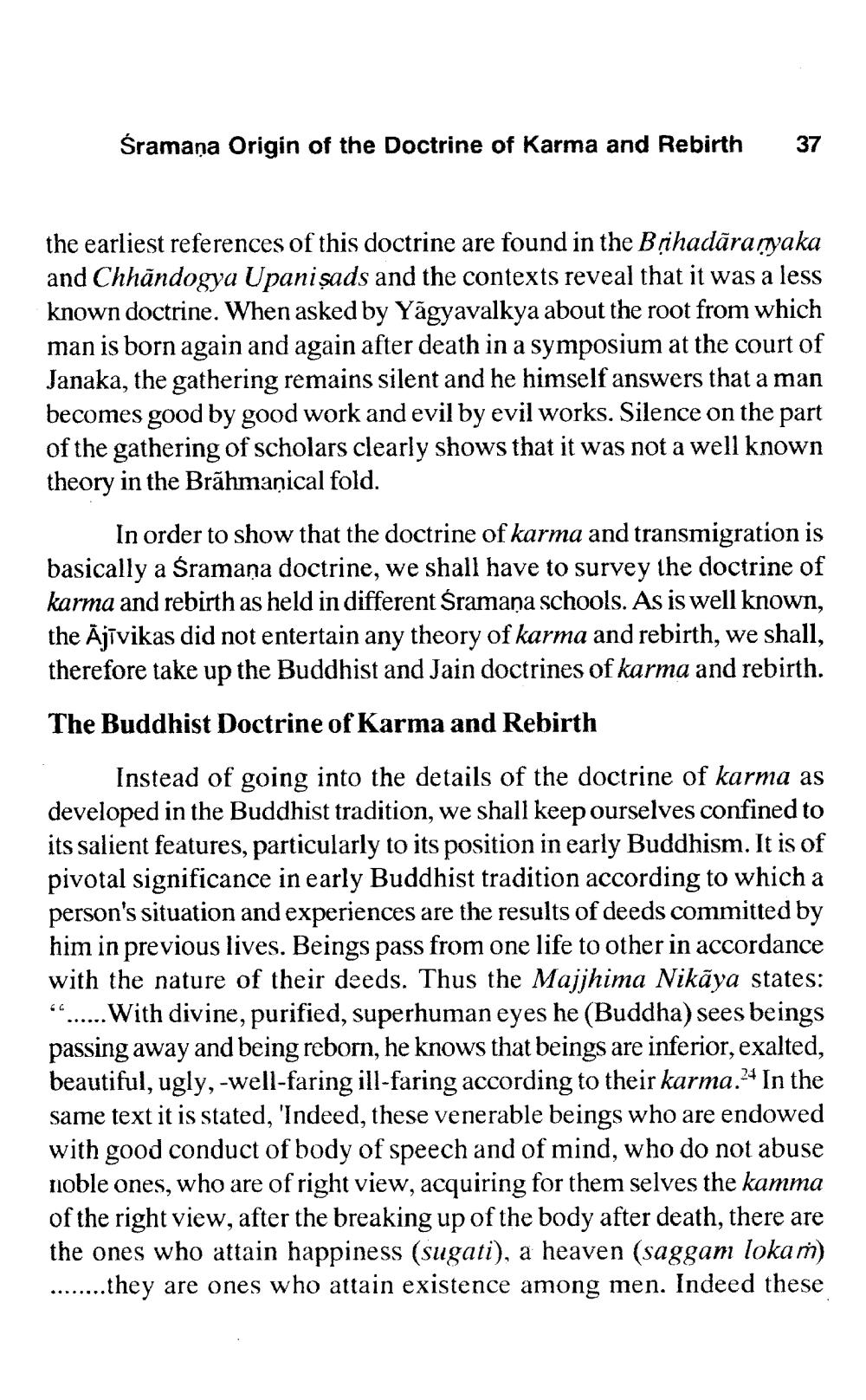________________
Śramaņa Origin of the Doctrine of Karma and Rebirth
37
the earliest references of this doctrine are found in the Brihadāramaka and Chhāndogya Upani şads and the contexts reveal that it was a less known doctrine. When asked by Yãgyavalkya about the root from which man is born again and again after death in a symposium at the court of Janaka, the gathering remains silent and he himself answers that a man becomes good by good work and evil by evil works. Silence on the part of the gathering of scholars clearly shows that it was not a well known theory in the Brāhmaṇical fold.
In order to show that the doctrine of karma and transmigration is basically a śramaņa doctrine, we shall have to survey the doctrine of karma and rebirth as held in different Śramaņa schools. As is well known, the Ajīvikas did not entertain any theory of karma and rebirth, we shall, therefore take up the Buddhist and Jain doctrines of karma and rebirth.
The Buddhist Doctrine of Karma and Rebirth
Instead of going into the details of the doctrine of karma as developed in the Buddhist tradition, we shall keep ourselves confined to its salient features, particularly to its position in early Buddhism. It is of pivotal significance in early Buddhist tradition according to which a person's situation and experiences are the results of deeds committed by him in previous lives. Beings pass from one life to other in accordance with the nature of their deeds. Thus the Majjhima Nikāya states: “......With divine, purified, superhuman eyes he (Buddha) sees beings passing away and being reborn, he knows that beings are inferior, exalted, beautiful, ugly, -well-faring ill-faring according to their karma.24 In the same text it is stated, 'Indeed, these venerable beings who are endowed with good conduct of body of speech and of mind, who do not abuse noble ones, who are of right view, acquiring for them selves the kamma of the right view, after the breaking up of the body after death, there are the ones who attain happiness (sugati), a heaven (saggam lokaṁ) ........they are ones who attain existence among men. Indeed these




